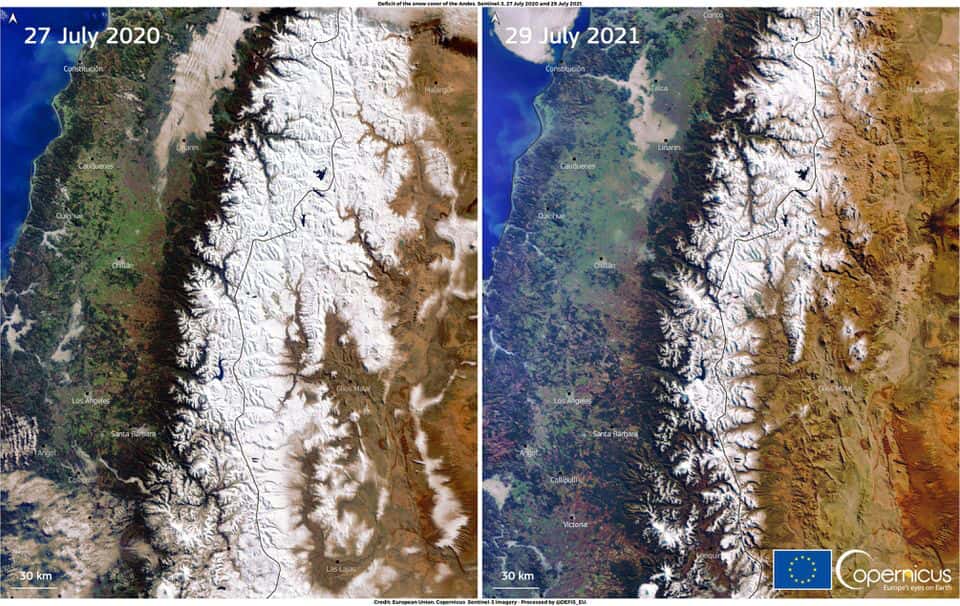
Images from the European Union’s Copernicus Sentinel-3 satellite show the stark contrast of the snowpack in the Andes Mountain range in South America between this year and last.
The mountain range is facing historically low snowfall this year during a decade-long drought, leaving many of the mountains with limited or no snow cover. Scientists are linking the drought to global warming.
“Here we are seeing a process of long-term decrease in precipitation, a mega-drought. If you look at the precipitation levels right now for the entire Cordillera [Andes range], they show that it has either not snowed at all or has snowed very little.”
– Ricardo Villalba of the Argentine Institute of Snow, Glacier and Environment Science Studies told Reuters
It is currently the middle of winter in the southern hemisphere when snowpack should be at its peak.
Most ski resorts have opened following closures last year during the pandemic, but lack of snow is forcing many to move snow to cover popular runs or make artificial snow.
Glaciers in the Andes, which had kept the same size or even grown between 2000 and 2010, are suddenly receding. Some have retreated 5.5 miles in the last century and 98% of Andean glaciers have shrunk in the same time.